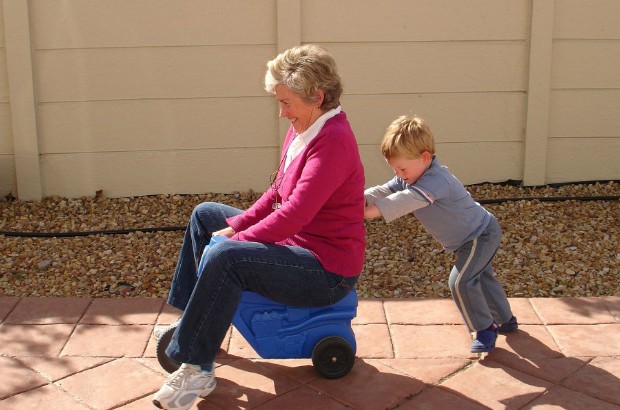Today we are publishing a further 5 papers in our series of evidence reviews which consider important issues in relation to the ageing population. This time the reviews focus on health and social care.
Understanding the challenges and opportunities of an older population in terms of health and care needs an appreciation of the needs of older people both now and in the future, and of the factors throughout the lifecourse that support people to live a long and healthy life, maintain wellbeing and participate fully in society.
People are living longer, but how many of these ‘additional years’ will be spent in good health?
As people in the UK are living longer, Professor Carol Jagger examines how many of these extra years are being spent in good health or without disability. She finds that the time spent in ill-health and disability is increasing. For example, the life expectancy of women at birth increased by 1.3 years between 2005 and 2010, while the number of years spent without disability only increased by 0.1 years. Differences in health expectancies between different local areas in the UK are larger than inequalities in life expectancy and are widening.
Professor James Nazroo considers how the time that people might expect to spend in good health varies by gender, race and socio-economic background. He examines the causes of these differences, and what is known about interventions to reduce the inequalities.
How can health and social care services enhance robustness in older age?
Professor Louise Robinson finds that, as multiple chronic diseases are inevitable with age, there is a need to move from treating a single chronic disease to managing multiple chronic diseases in a more efficient way. There has already been a transfer of chronic disease management from primary to secondary care, and most people now receive the majority of their care from their GP and community services.
The author argues that there is a need to improve the training, efficiency and morale of primary and community care services. She suggests that; "the ultimate long-term goal of policy makers and service commissioners will be to ensure community-based health and social care work in a more integrated way to allow older people to remain independent and living in their own homes for as long as possible".
What factors affect our ability to overcome adversity in later life?
The evidence for factors influencing emotional and personal resilience in later life is reviewed by Dr Kate Bennett. Extending working life is likely to promote the ability to ‘bounce back’ from adversity in later life, and can augment retirement savings and income. Volunteering, providing unpaid care and being a grandparent may also promote individual resilience in later life.
The role of supportive services in supporting independent and healthy living in older age
In this review Dr Karen Windle considers the evidence around effective and cost-effective services to promote independence, prevent or delay the deterioration of health and wellbeing and delay the need for more costly and intensive services.
The author recommends that ‘community navigators’ can provide effective practical and social support to older people advising them on suitable interventions and services that are available. Lifestyle changes and practical interventions can have a positive effect. For example, changes to overcome social isolation and loneliness can reduce loneliness and depression, improve physical health and result in differences in mortality, while physical activity can result in improved quality of life and reductions in the use of secondary healthcare.
The review argues that managing future pressures on the health and social care environment requires rebalancing the systems towards wellbeing interventions and prevention.
Read the reports:
- Future of ageing: life expectancy and healthy life expectancy trends (Jagger)
- Future of ageing: inequalities in healthy life expectancy (Nazroo)
- Future of ageing: health and social care services (Robinson)
- Future of ageing: emotional and personal resilience (Bennett)
- Future of ageing: preventive health and social care services (Windle)
Featured image by Catherine Scott - Matti on Wikimedia. Used under Creative Commons.
Sign up for email alerts from this blog, or follow us on Twitter.


Recent Comments